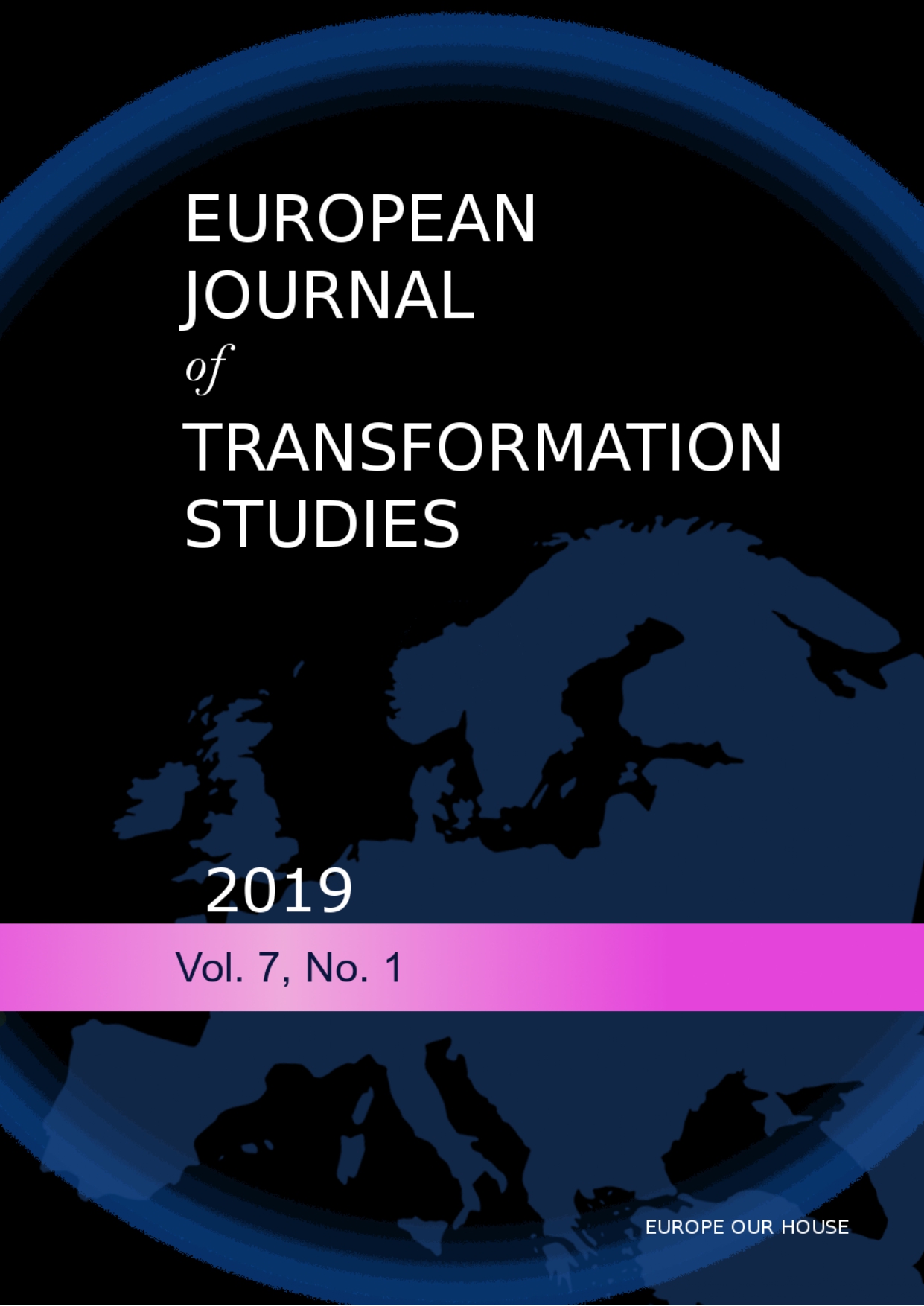Political opposition in transitional democracies: categorical analysis of the phenomenon
Keywords:
political opposition, power, transitional period, transitology, post-communist statesAbstract
With the help of etymological and institutional approaches, the article analyzes theoretical aspects of the activity of opposition as a new legitimate participant of the political process in the context of democratic transformations in the post-communist states. In order to distinguish other actors of opposition activity through the concept of “opposition”, the author intentionally narrowed down the concept of “political opposition” to the institution of political parties as they are main potential subjects of power.
Downloads
References
Abdulaieva, Y., (2007), Institutional conditions for the formation of constructive opposition in the countries of Central and Eastern Europe. In: News of The Herzen State Pedagogical University of Russia, № 31, Т. 10, pp. 7–14.
Bakirov, V., Fisun, V., Shevchenko, V., Sazonov, М., (2008), Comparative politics. The main political systems of the modern world, V. N. Karazin Kharkiv National University, Kharkiv.
Bożyk, S., (2005), Opozycja parlamentarna w Sejmie RP, Wydawnictwo Sejmowe, Warszawa.
Chervona, L., (2004), The phenomenon of the opposition in Ukraine: socio-philosophical analysis: PhD thesis, Kyiv.
Chikhladze, T., (2017), Post-Soviet Authoritarian Regimes in Times of Political Crises. Research Centre for East European Studies, University of Bremen. In. Policy Paper. No 1. [Accessed 7-5-2019]. Available online: http://caspianet.eu/wp-content/uploads/2017/02/Tatia-Chikhladze-Post-Soviet-2.pdf.
Fisun, O., (2016), Informal Institutions and Ukraine’s Neopatrimonial Democracy. In. Agora. No. 17, pp. 9-13.
Friszke, A., (1994), Opozycja polityczna w PRL 1945–1980, Aneks, Londоn.
Gavrilov, G., (2003), Models of political opposition: theoretical and methodological analysis, Institute of Philosophy and Law, The Russian Academy of Sciences, Ekaterinburg.
Gel'man, V., (2015), Political Opposition in Russia: A Troubled Transformation. In. Europe-Asia Studies. Vol. 67, Issue 2, pp. 177-191.
Huntington, S. (2005), The Third Wave. In: Democracy: Anthology, Smoloskyp, Kyiv, pp. 574-582.
Ionesku, G., Madariaga I., (1972), Opposition. Past and Present of Political Institution, Penguin Books, London, Baltimore, Melbourne.
Matsiievskyi, Yu., (2016), In the trap of hybridity: zigzags of the political regime transformations in Ukraine (1991-2014). Books–XXI, Chernivtsi, 551 p.
Melvil, А., (2007), Democratic transitions. In. Political science: Lexicon, Russian Political Encyclopedia, Moscow, pp. 123–134.
Nations in Transit, (2018), Freedom House. [Accessed 7-5-2019]. Available online: https://freedomhouse.org/report/nations-transit/nations-transit-2018.
Przeworski, А., (2005), Transitions to Democracy: Liberalization and Democratization. In: Democracy: Anthology, Smoloskyp, Kyiv, pp. 605–648.
Riabov, S., (2005), Opposition as a source of alternative politics. In. Elections and democracy. № 4 (6), pp. 8–18.
Stepan, A., (1990), On the Task of a democratic Opposition. In: Journal of Democracy. Vol 1, No 2., pp. 44–46.
The status of opposition: domestic and foreign experience, recommendations: informational and analytical research, (2006), Laboratory of legislative initiatives, Kyiv.
Tkachenko, T., (2007), Opposition as a political institution and a form of public protest. In: Political management. № 5, pp. 40–45.
Tsygankov, А., (1995), Modern political regimes: structure, typology, dynamics, Interpraks, Moscow.
Vinnychuk, N., (2007), Political opposition as an institution of modern democracy, the dissertation author's abstract, Kyiv.

 Academic Scientific Journals
Academic Scientific Journals



